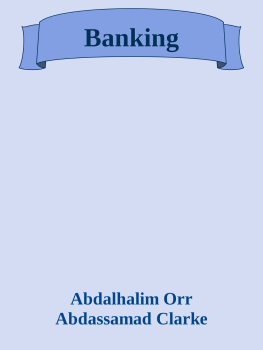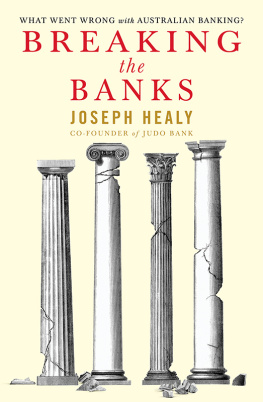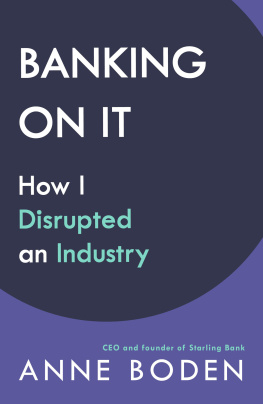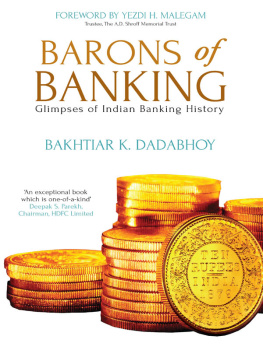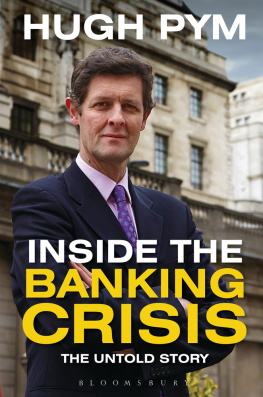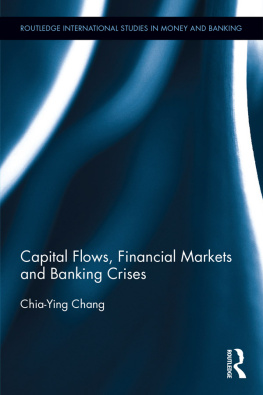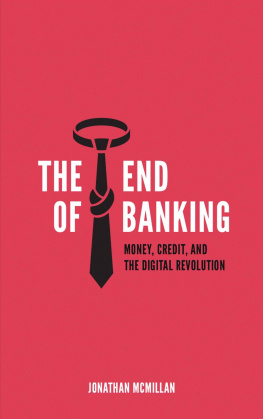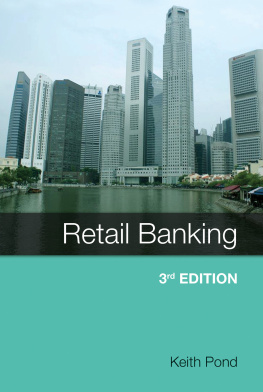Abdalhalim Orr - Banking
Here you can read online Abdalhalim Orr - Banking full text of the book (entire story) in english for free. Download pdf and epub, get meaning, cover and reviews about this ebook. year: 2014, publisher: Diwan Press, genre: Religion. Description of the work, (preface) as well as reviews are available. Best literature library LitArk.com created for fans of good reading and offers a wide selection of genres:
Romance novel
Science fiction
Adventure
Detective
Science
History
Home and family
Prose
Art
Politics
Computer
Non-fiction
Religion
Business
Children
Humor
Choose a favorite category and find really read worthwhile books. Enjoy immersion in the world of imagination, feel the emotions of the characters or learn something new for yourself, make an fascinating discovery.
- Book:Banking
- Author:
- Publisher:Diwan Press
- Genre:
- Year:2014
- Rating:4 / 5
- Favourites:Add to favourites
- Your mark:
- 80
- 1
- 2
- 3
- 4
- 5
Banking: summary, description and annotation
We offer to read an annotation, description, summary or preface (depends on what the author of the book "Banking" wrote himself). If you haven't found the necessary information about the book — write in the comments, we will try to find it.
Banking — read online for free the complete book (whole text) full work
Below is the text of the book, divided by pages. System saving the place of the last page read, allows you to conveniently read the book "Banking" online for free, without having to search again every time where you left off. Put a bookmark, and you can go to the page where you finished reading at any time.
Font size:
Interval:
Bookmark:
Banking
The root cause of the injustices of our time
Edited by: Abdalhalim Orr and
Abdassamad Clarke
Diwan Press
Copyright Diwan Press Ltd., 2009 CE/1430 AH
Banking: the root cause of the injustices of our time
Published by: Diwan Press Ltd.
Unit 4, The Windsor Centre
Windsor Grove
London
SE27 9NT
Website: www.diwanpress.com
E-mail: info@diwanpress.com
All rights reserved. No part of this publication may be reproduced, stored in any retrieval system or transmitted in any form or by any means, electronic, mechanical, photocopying, recording or otherwise without the prior permission of the publishers.
First edition: Abdalhalim Orr (Editor)
Second Edition: Abdassamad Clarke (Editor)
Typeset by: Abdassamad Clarke
Cover design The Wasteland by:
Muhammad Amin Franklin
A catalogue record of this book is available from the British Library.
ISBN-13: 978-1-84200-110-3 (paperback)
978-1-908892-11-9 (ePub)
978-1-908892-32-4 (Kindle)
it has produced what the world never saw before;
starvation in the midst of abundance.
William Cobbett (1763 1835)
The title Twenty years after refers to our taking stock of the situation since publication in 1989 of the proceedings of the original Norwich seminar, Usury: root cause of the injustices of our time . Rather suggestively, it also lends itself to the evocation of Alexander Dumas book of the same name. In utterly brilliant fashion, Dumas sketches life in the 17th century French royal court, replete with its intrigues, liaisons and love affairs, usually inextricably interwoven. This occupies a good first third of the book as the reader is gradually drawn into the conspiracies and political game-playing when, quite suddenly, the author introduces into the story the now middle-aged but still heroic figure of DArtagnan. The effect is astonishing, like the appearance of spring after a long winter, or a fresh wind after a long soporific summer of overcast weather and sultry storms.
For those of us fortunate enough to have attended the original seminar, it had exactly the same effect on us. After lifetimes of hearing the endless analyses of left and right, Conservatives and Labour, Democrats and Republicans, here was an argument that went to the core of the matter in one bound, and yet did so with a degree of scholarship, and indeed erudition, that was anything but cavalier. The result was electric. It was also well before its time.
However, with the catastrophic bank collapses of 2008 and the total systems shutdown of 2009, history has furnished us another opportunity to place this vital material before the reader. Whatever the result of these signal events a slide into depression, cataclysmic upheaval or a rebound into dynamic activity the argument in this work nevertheless stands: usury is demonstrably the motor of the injustices of our age.
Accepting that usury and its machinations have moved on considerably since the term was first coined as a euphemism for the charge made for the use of money we must also acknowledge that we are no longer talking about extortionate interest on a loan as in modern dictionary definitions or even just plain interest on a loan as in the etymological dictionaries, abhorrent though both these matters are, but we are now confronting the very nature of money itself.
That we have conceded to groups of utterly disreputable people the right to invent money out of nothing, and then to lend it to us, at their discretion, and at extortionate interest rates is simply beyond belief. It is hardly credible that we, as human beings, could have been so gullible. Nevertheless, there we are. In the interim, many have pointed to this crime, and many have recommended cures for it, but unfortunately some of the alternatives have been even worse than the original crime.
It would take a leap of utter genius, childlike in its immediacy, such as that provided by Hans Christian Andersons visionary tale The Emperors New Clothes , to reach the perfectly obvious conclusion that we do not need the gold standard again, since that would have to be managed by the banks, whose ill-fitting sheeps clothing had fallen off once too often to hide the naked fangs of the wolves from whom we wished to escape. What we need is actual gold and silver themselves, and trade in real commodities without the interference of economists and financiers who, to a man, are steeped in the old usurious thinking.
That leap was achieved by Shaykh Abdalqadir as-Sufi, and it was taken to its furthest elaboration in both theory and practice by his student Umar Ibrahim Vadillo, whose works we wholeheartedly recommend to the reader since they introduce us to modes of trade and commerce that are in harmony with the rights of all peoples and the rights of the earth itself and its ecosystems and will remain so into the distant future being based upon natural rather than usurious parameters.
Much of the work in this book, whether from the seminar or the contemporary material, has been carried out by Muslim authors whose aim it has been to recover the values that lie at the core of the Judaeo-Christian and the classical Greek philosophical traditions that lie at the very root of everything that is Western culture. In contrast, spurious so-called Islamic economics consists of a drive on the part of certain Muslim academics and interested financiers to recast modern usurious commercial instruments in such a way as to supply the resulting Muslim demand with an exclusive range of alternative financial transactions. What this book proposes instead is the dynamic reactivation of the original commercial law of Islam which endorses the best of our common Western heritage and involves Muslims and non-Muslims transacting harmoniously with a shared set of non-usurious instruments.
The reader, whoever he or she may be, is invited to take this discovery and make use of it in the assurance that as well as having its roots in the Western tradition, it also formed the substance of non-usurious trade for an entire global civilisation involving Muslims, Christians, Jews and many others, for almost a millennium and a half until, with a number of honourable exceptions, they fell for the lure of the limitless wealth apparently offered by the bankers. Unfortunately, the combination of gullibility and sheer greed was enough to blind the majority to the realisation that the limitless wealth was based on limitless and exponentially expanding debt which, having been unleashed, has now come close to destroying the social and ecological equilibrium of the entire biosphere we call Earth.
A major change in the book since its first publication in 1989, apart from the addition of some new material, is to rename it Banking: the root cause of the injustices of our time, nevertheless acknowledging the inadequacy of the term banking to cover fiat money, fractional reserve banking, the stock exchanges, credit-default-swaps, derivatives, hedge funds and the whole complex of instruments and institutions that is collapsing around our ears.
As to the new articles in the Postface, the first, Crisis! What Crisis?, was written in response to two eminent Anglican Archbishops pontifications on the unfolding economic collapse. Its inclusion here is not accidental since the Church was in at the birth of the current world banking order, baptismal font at the ready. The second is the text of a speech by Dr. Zeno Dahinden to a conference in South Africa in which he outlined the 20th century history that has culminated in the events of 2008-9. The third, Open Trade A Call to Action, is a summary of key elements of the way forward that, as well as being grounded in historical practice, is today being put into action by increasing numbers of people.
Next pageFont size:
Interval:
Bookmark:
Similar books «Banking»
Look at similar books to Banking. We have selected literature similar in name and meaning in the hope of providing readers with more options to find new, interesting, not yet read works.
Discussion, reviews of the book Banking and just readers' own opinions. Leave your comments, write what you think about the work, its meaning or the main characters. Specify what exactly you liked and what you didn't like, and why you think so.

